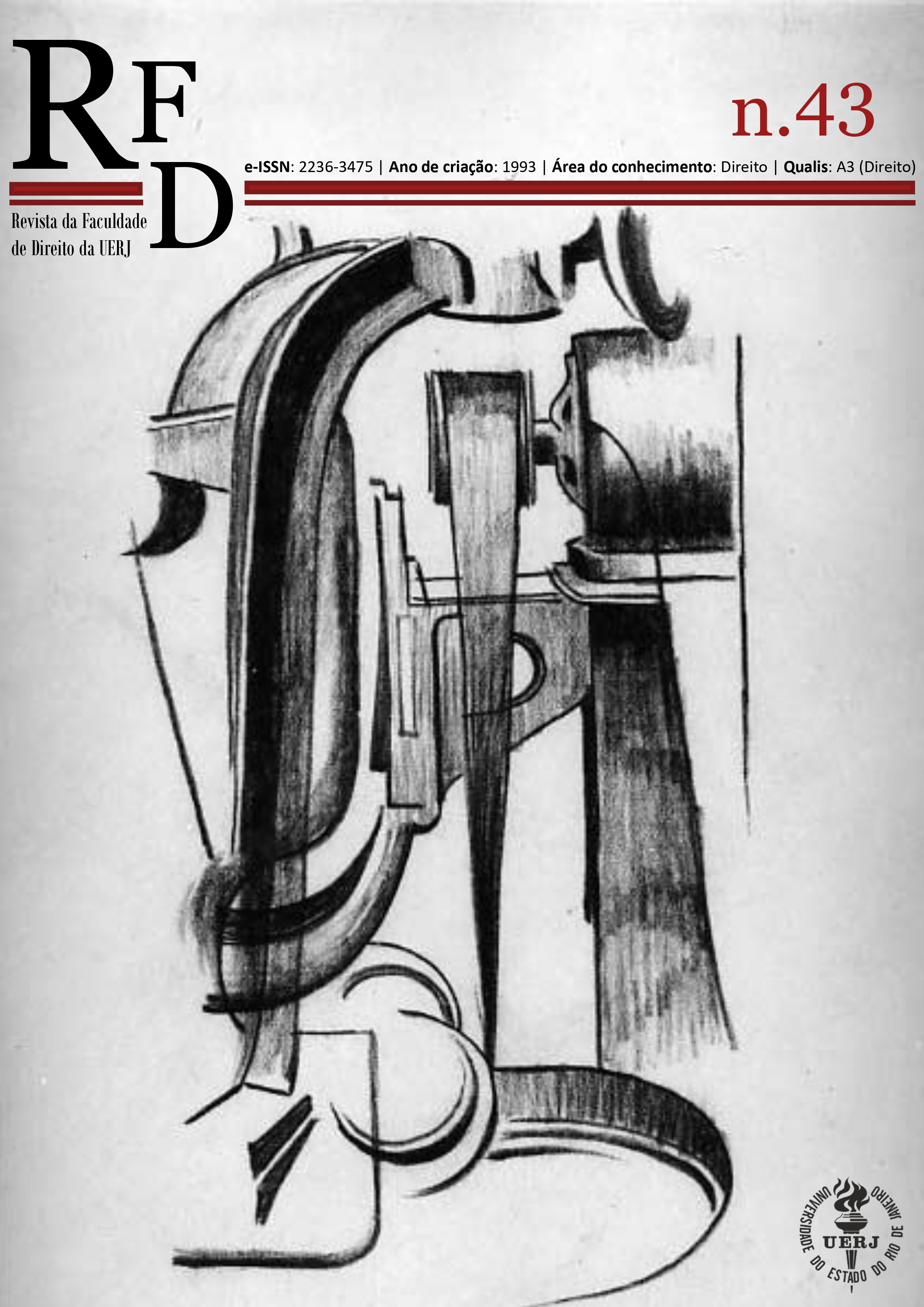A ARGUIÇÃO DE FALSIDADE E A AÇÃO DECLARATÓRIA INCIDENTAL NO CÓDIGO DE PROCESSO CIVIL
DOI:
https://doi.org/10.12957/rfd.2024.81623Palavras-chave:
Ação declaratória incidental , Arguição de falsidade, falsidade documental , Questão documentalResumo
Analisa-se o regime do incidente de arguição de falsidade, que pode ser instaurado após a produção da prova documental. Dependendo de como seja instrumentalizada, no curso do processo, a arguição de falsidade poderá ter natureza de mero incidente ou de ação declaratória incidental. Como ação declaratória incidental, examina-se a possibilidade do seu cabimento, considerando que a Lei nº 13.105, de 16 de março de 2015, Código de Processo Civil vigente, deixou de prevê-la, expressamente, como o fazia o Código de Processo Civil de 1973, Lei nº 5.869, de 11 de janeiro de 1973, em seu artigo 325, que assim estabelecia: “contestando o réu o direito que constitui fundamento do pedido, o autor poderá requerer, no prazo de 10 (dez) dias, que sobre ele o juiz profira sentença incidente, se da declaração da existência ou da inexistência do direito depender, no todo ou em parte, o julgamento da lide (art. 5º). Para tanto, será necessário examinar a noção de questão prejudicial, bem como o conceito e a finalidade da ação declaratória incidental.
Palavras-chave: Ação declaratória incidental; Arguição de falsidade; Falsidade documental; Questão prejudicial.
Downloads
Publicado
Como Citar
Edição
Seção
Licença
Direitos Autorais
oArtigos publicados na Revista da Faculdade de Direito da UERJ (RFD/UERJ)
Os Direitos autorais dos artigos publicados pertencem à Revista da Faculdade de Direito da UERJ (RFD/UERJ). É permitida a reprodução total ou parcial dos artigos desde que citada a fonte.
oReprodução parcial de outras publicações
Artigos submetidos que contiverem partes de texto extraídas de outras publicações deverão obedecer aos limites especificados para garantir originalidade do trabalho submetido. Plágio em todas as suas formas constitui comportamento antiético e é inaceitável.
Recomenda-se evitar a reprodução de tabelas e ilustrações, extraídas de outras publicações. O artigo que contiver reprodução de uma ou mais tabelas e/ou ilustrações de outras publicações só será encaminhado para análise se vier acompanhado de permissão escrita do detentor do direito autoral do trabalho original para a reprodução especificada na Revista da Faculdade de Direito da UERJ (RFD/UERJ). A permissão deve ser endereçada ao autor do trabalho submetido. Em nenhuma circunstância a Revista da Faculdade de Direito da UERJ (RFD/UERJ) e os autores dos trabalhos publicados nesta revista repassarão direitos assim obtidos.
·Os trabalhos não aceitos para a publicação serão devolvidos aos autores, se solicitado.
A Revista da Faculdade de Direito está licenciada com uma Licença Creative Commons Atribuição 4.0 Internacional.
Este trabalho está licenciado sob uma Licença Creative Commons 4.0, Atribuição-Sem Derivações.
Esta licença permite copiar e redistribuir o material em qualquer suporte ou format para qualquer fim, mesmo que comercial, desde de que citada a autoria original.











